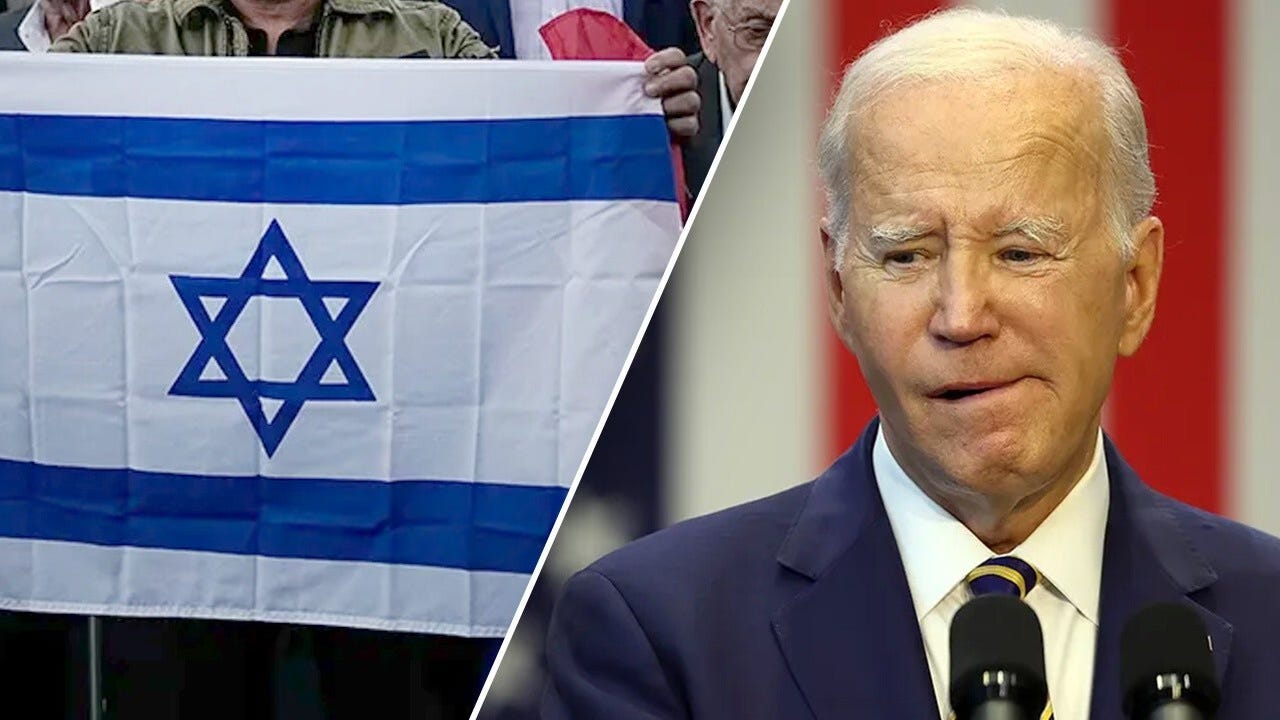Nawaf's Notes: Gaza's Unending Nightmare - A Call for Decisive U.S. Intervention
After More Than 250 Days of War, Political Turmoil, and Humanitarian Crisis, The World Needs Immediate Action!
The following is based on the author's original Arabic article published in Qatar’s Al-Raya Newspaper on June 19, 2024, 1…
More than 250 days into the Gaza conflict, relentless violence, a growing humanitarian catastrophe, and political stalemate define the situation. Prime Minister Benjamin Netanyahu’s recent dissolution of the war cabinet, coupled with ongoing military operations and the severe humanitarian crisis, paints a grim picture. Despite announced tactical pauses, the fighting continues unabated. The time for international intervention is now. The United States must act decisively if it wishes to be seen as a genuine advocate for peace.
Political Maneuvering Amidst Crisis
Israeli Prime Minister Benjamin Netanyahu's decision to dissolve the six-member war cabinet highlights the political turbulence within Israel. This move, precipitated by the departure of centrist former general Benny Gantz, reflects deeper fractures in the Israeli political landscape. Gantz, who had joined Netanyahu in a national unity government, cited Netanyahu's failure to form a coherent strategy for the Gaza war as his reason for leaving. Now, Netanyahu relies on a smaller group of ministers, including Defence Minister Yoav Gallant and Strategic Affairs Minister Ron Dermer, while facing immense pressure from his nationalist-religious coalition partners.
The Israeli public, while largely supportive of the goal to dismantle Hamas, has grown increasingly critical of Netanyahu's handling of the war, especially regarding the hostages still held in Gaza. Protests demanding new elections and a more effective government response have intensified the political crisis. This internal instability underscores the need for external pressure to shift the dynamics toward peace.

The Humanitarian Catastrophe
The humanitarian situation in Gaza is catastrophic. The destruction of aid warehouses, such as Humanity & Inclusion's facility in Rafah, exemplifies the severe impediments faced by humanitarian organizations. Despite proper notifications to Israeli authorities, attacks on these facilities have become a troubling pattern, exacerbating the suffering of Gaza's civilian population. "Our warehouse was completely bulldozed," an HI spokesperson said, highlighting the indiscriminate nature of the destruction.
UNRWA's chief, Philippe Lazzarini, has reported no change in hostilities despite Israeli military announcements of daily tactical pauses. The reality on the ground remains dire, with essential aid obstructed by ongoing fighting, inspections, and looting. Gaza's 2.3 million residents, already facing severe shortages of food, water, sanitation, shelter, and healthcare, are plunged deeper into crisis with each passing day.
The international community must recognize that the tactical pauses are insufficient and largely ineffective. The continued military operations in Rafah and other parts of southern Gaza underscore the disconnect between political announcements and on-ground realities. The humanitarian needs are urgent, and the impediments to aid delivery must be lifted immediately.
The Role of the United States
As a long-standing ally of Israel, the United States bears significant responsibility in influencing the course of this conflict. U.S. special envoy Amos Hochstein’s recent visit to Jerusalem aimed at de-escalating tensions on the Israel-Lebanon border is a step in the right direction. However, more robust actions are required to address the Gaza conflict directly.
If the United States is serious about a negotiated settlement, it must exert greater pressure on Israel to halt its military operations and commit to a permanent ceasefire. Diplomatic efforts must go beyond mere rhetoric, demonstrating a clear stance against the prolonged violence and advocating for immediate humanitarian relief.
The U.S. has the leverage to bring both parties to the negotiating table. By conditioning military aid on progress toward a ceasefire and supporting international diplomatic efforts, Washington can play a pivotal role in ending the cycle of violence. Moreover, supporting initiatives that ensure the protection and delivery of humanitarian aid will help alleviate the immediate suffering of Gaza's civilians.
A Call for Genuine Intervention
As the Gaza conflict drags on, the international community, led by the United States, must take decisive action. The dissolution of Israel’s war cabinet, ongoing military operations, and the dire humanitarian situation all signal a conflict spiraling out of control. The tactical pauses are a temporary band-aid on a gaping wound that requires a comprehensive and sustained effort to heal.
The U.S. must lead by example, demonstrating that it is serious about peace and willing to use its influence to achieve a permanent ceasefire. Only through genuine intervention and a commitment to humanitarian principles can we hope to see an end to this brutal conflict. The future of Gaza's civilians and the broader stability of the region depend on it.
The international community must demand more than temporary pauses. A sustained and enforceable ceasefire, accompanied by a robust mechanism for humanitarian aid delivery, is essential. The United States, leveraging its strategic relationship with Israel, must champion this cause. It must ensure that aid reaches those in need, that hostilities cease, and that a pathway to a negotiated settlement is established.
Failure to act decisively not only prolongs the suffering of Gaza's civilians but also undermines the credibility of the United States as a mediator and advocate for peace. As history has shown, conflicts left unresolved tend to spiral into deeper chaos, affecting regional and global stability. The humanitarian toll is too great, and the moral imperative too strong to allow the status quo to persist.
Final Note …
The ongoing war in Gaza is a multifaceted crisis requiring immediate and sustained international intervention. The dissolution of Israel's war cabinet, the relentless military operations, and the severe humanitarian impact all point to the urgent need for a comprehensive and lasting solution. The United States has a pivotal role to play in steering this conflict towards peace. By using its influence to push for a permanent ceasefire and ensuring humanitarian aid is delivered, it can demonstrate its commitment to a just and lasting resolution. The time for decisive action is now; the people of Gaza cannot afford to wait any longer.








